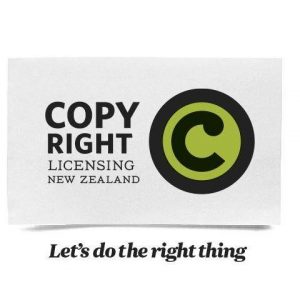Election 23: Vote for Books & Reading
The NZ Book Sector asks candidates to support reading and the sharing of Aotearoa New Zealand stories.
Reading and books are vital to modern Aotearoa: they help us to make sense of ourselves and the world around us. Local stories and books contribute to the culture and heritage of our country, while high levels of reading participation are integral to our success as a modern democracy.
- 85% of New Zealanders read a book each year (Read NZ, 2021).
- 1.633,812 million New Zealanders are active public library members (PLNZ, 2021).
- 97 million books were read in NZ in 2021, 25 million were NZ (Read NZ, 2022).
- 2475 books were published in Aotearoa in 2022 (PANZ).
- NZ publishing revenue is $292 million; $51.8 million domestic book sales (PANZ, 2022)
- Authors average annual income $15,600 (CLNZ Horizon Writers Survey, 2020)
- 30% of Read NZ’s 2021 survey said reading became more important during the pandemic and 90% of readers cited it as crucial to their wellbeing.
DO YOU AGREE WITH THESE POLICIES TO SUPPORT NZ AOTEAROA STORYTELLING?
1: A national strategy for books and reading in Aotearoa.
The sector needs an innovative and robust plan to invest in Aotearoa New Zealand books and reading, that will support readers, writers and illustrators, and access new digital technologies, leading to increased export and international opportunities. The book industry supports the creation of a Book Commission and the introduction of a nationwide ‘books and reading’ plan that will celebrate the diverse range of locally produced stories. We ask that the Ministry of Education champions local content within the English curriculum for NZ books in NZ schools.
2: Invest in stories and sustainable careers for Māori writers.
Te Reo Māori stories underpin who we are as a nation. They define us and fuel the broader arts through adaptation for stage and screen. Increased investment will support the diversity of stories from Aotearoa New Zealand.
3: Reform Public Lending Right compensation and funding.
Public Lending Right (PLR) pays for free public access to printed books in NZ libraries. Authors earn, on average, only $15,600 pa (CLNZ Horizon Survey 2020). Despite the importance of story, and links between local content and literacy, authors are among the most underpaid creators in Aotearoa. The current system excludes an Educational Lending Right (ELR) and Digital Lending Rights (DLR). This is out of step with major trading partners, and we hope the new government will prioritise the completion of the review begun by the National Library in 2017.
4: Ensure fair reward and creative rights.
It is imperative The Copyright Act 1994 protect the creative rights of authors, illustrators, translators, and publishers. The review of the Act needs to protect creative work from unauthorised AI use. International laws governing human rights and intellectual property continue to protect creators and NZ laws need to reflect this.
5: Realise the economic potential of NZ stories.
The Book Sector asks for support for Aotearoa NZ stories to their potential in local and global markets. Government support, through investment, beachhead programmes, exhibitions at book fairs and festival appearances, and funding for publisher delegations or training programs will strengthen the profile of NZ books. Authors and publishers purport fair compensation for government use: via Radio NZ/TVNZ broadcast with budgets to adapt NZ writing in line with the charter, and Ministry of Education fair remuneration for licensed content used in schools. We support voluntary local content quotas in the media, and incentives for Radio NZ/NZ On Air/Film Commission/TVNZ cross-pollination for adaptation of local stories for broadcast and adaptation for screen.
6: Buy local, read local.
Public libraries spend the bulk of book purchasing budgets offshore, which supports the Australian eco-system. We ask that Government and rate-payer funding support local businesses across the book economy in Aotearoa. The sector supports an annual nationwide READ LOCAL campaign to highlight the value and benefits of NZ stories.







